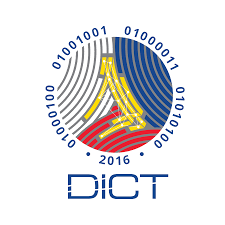The steep price of broadband packages for ‘last-mile’ (or remote) areas will continue to make it difficult, if not impossible, for more Filipinos to access the Internet, said UK-based think tank BMI, a company of Fitch (analytics) Solutions.
In its latest commentary, BMI said that while the recently approved P16.1-billion Philippines Digital Infrastructure Project (PDIP) will improve internet penetration, more needs to be done for last-mile areas.
BMI noted that consumers are not immediately able to and consistently buy in long-term contracts with broadband prices averaging P1,500, reported Business Mirror.
“We believe that obstacles to consistent and widespread fiber uptake remain the prices of packages in last-mile areas, particularly stemming from the elevated costs of rollout that are further increased by the Philippines’ archipelagic configuration,” BMI said.
Low-cost packages
BMI noted that telecommunication firms, PLDT, GLobe and Converge ICT already introduced low-cost fiber brands to cater to “price-sensitive consumers.”
These may appeal to temporary fiber clients because of the flexibility of these low-cost fiber brands but this may lead to lower average revenue per user (ARPU) data for the firms.
“By extensively cofinancing last-mile area rollout, wholesale network providers and ISPs may be encouraged to further decrease prices on fiber bundles though at the expense of ARPU figures,” it added.
BMI said Fiber to the “x” (FTTx) in the country is expected to slightly improve to 1.83 million subscription rate and 1.4 for every 100 people penetration rate by 2033.
This, BMI said, is slightly better than the 1.58 million subscription and 1.3 for every 100 penetration rate estimates in 2024.
“Our forecasts are reflective of a [consistent] uptake for household-level fiber broadband only in metropolitan and the suburban areas, where disposable income is highest and churn rates lowest,” BMI said.
Gov’t efforts
The National Economic and Development Authority (NEDA) Board recently approved the PDIP, funded by the World Bank, to enhance broadband infrastructure in last-mile areas.
The project, NEDA said, is anchored on the National Broadband Program, a flagship initiative of the Department of Information and Communications Technology (DICT).
The project will have five major components: backbone network; middle-mile network; access network (last-mile); network security; and project management support.
“Execution and project management will be key for the success of the PDIP to boost stronger fiber uptake among Philippines-based households,” BMI said.
NEDA Secretary Arsenio M. Balisacan, the Board’s vice chair, highlighted the transformative potential of the project.
“Broadband services have already opened up numerous opportunities for Filipinos, from work-from-home arrangements to digital access to critical public and private services, including the latest technological tools such as artificial intelligence. This project will enable us to connect more Filipinos to markets and networks, spurring economic development,” he said.
The government envisioned the project to enhance the country’s broadband connectivity and bring high-speed internet connection even in disadvantaged areas to augment digital infrastructure.
The PDIP aims to bridge the digital divide, stimulate private sector investments, and strengthen capacity for cybersecurity and for protecting critical information infrastructure.
Open access
Balisacan is strongly advocating the passage of the Open Access bill to allow the country to harness the “full benefits” of Artificial Intelligence (AI).
“To strengthen the country’s internet infrastructure and enhance digital connectivity, NEDA, in collaboration with other government champions, strongly advocates the passage of the Konektadong Pinoy Act or the Open Access bill,” Balisacan said this during the launch of the National AI Strategy Roadmap 2.0 and the Center for AI Research (CAIR) on Wednesday.
“By promoting access to affordable and better-quality internet services, this legislation will allow the country to harness the full benefits of AI,” Balisacan added.
AI technology depends on “real-time data exchange and processing capabilities, requiring high-speed internet and vast data storage solutions, he said.
Balisacan emphasized that to unlock opportunities, the country must address the challenges of “limited internal capacities” in public institutions and infrastructure, which impede the effective oversight and facilitation of AI development and regulation.”
#WeTakeAStand #OpinYon #NEDA #DICT #PDIP

